|
Today is the optional memorial of Sts. Cosmas and Damian, who were twin brothers born in the third century in Arabia. Both Cosmas and Damian became physicians, and in true Christian charity, refused to accept payment from their patients. During the persecutions under Roman Emperor Diocletian, the brothers’ renown in their Christian community made them easy targets. They were imprisoned and tortured by various means in an effort to force them to recant their faith, and after surviving most of these tortures while remaining true to Christ, Cosmas and Damian were finally beheaded.
What draws me to the story of Sts. Cosmas and Damian is not only their adherence to the faith while under excruciating torture, but also their unfailing generosity to those around them. They tended the sick in their community and did so without asking for or taking any monetary compensation. I like to think this was because they were often helping sick people who were also too poor to afford a physician in the first place. Generosity is a virtue that can easily be motivated by pride—we do good things for others, secretly hoping to get accolades or some kind of reward for being so self-giving. But I think generosity is really about giving to others —material, spiritual, or emotional—because you know the other will benefit, even if there is no compensation for you in return, or if (like Cosmas and Damian) you refuse to take any. Generosity is not only exemplified by a wealthy man donating money to charitable causes, nor only by going on mission trips to help those in poverty, nor is it demonstrated by showering poor children with gifts at Christmastide. We can cultivate the virtue of generosity in ourselves much closer to home and on a daily basis—just as St. Cosmas and St. Damian did. Generosity is lived out by a talented musician volunteering at his church to worship God in song, or by a mother who prepares and brings home-cooked meals to other families in her parish who have a new baby or have had a recent surgery. There is also spiritual and emotional generosity: being present and available to our siblings, children, parents, or friends as they struggle with transitions or discernment. When we engage in these acts of generosity, we serve Christ by serving others—even if it is not necessarily a sacrifice for us to do so. (Although I know for myself, the sacrifice that comes with being generous is striving to be selfless in my generosity and not to expect or desire reciprocation.) We are called to use anything that we have been given in order to glorify God. And what about those—presumably poor—people that Sts. Cosmas and Damian healed and treated? Who knows what kinds of generosity they were able to offer to their benefactors as a result of their encounter with the twin saints? Maybe they were generous in their prayer lives and interceded for the physician brothers. Maybe they were inspired by the generosity and faith of the two saints and went on to assist others in their community. Even if we cannot always be materially generous to each other, giving of ourselves in any capacity can cause a ripple effect of generosity throughout our communities. We can also learn to support and foster the generosity of others by thinking about how we respond when we are offered someone’s generosity, whether we asked for it or whether it was volunteered to us. Personally, I am working on asking for help or accepting generosity with humility. I know that I am less likely to help someone if they repeatedly protest my efforts or insist that I am doing too much, and therefore I try not to protest or downplay the good work that someone does for me. I try to remind myself that by serving each other, we are ultimately serving Christ. Questions for Reflection: Have you ever been the recipient of an act of generosity that changed your life? How so?
2 Comments
Today is the celebration of the Feast of St. Januarius, lovingly known in Italy as St. Gennaro. Januarius was an Italian bishop and martyr who died around the year 305. Not much is known about him other than what has been passed down in tradition, which tells us that the bishop of Benevento died under the Christian persecution of Diocletian along with six companions. After being thrown to wild beasts, who did not attack them, the Christians were beheaded. The accounts and lives of the martyrs always serve to build up the Church. As Tertullian’s saying famously states, "the blood of the martyrs is the seed of the Church." We recall the accounts of martyrs throughout the ages such as Felicity and Perpetua, Joan of Arc, Thomas More, Maximilian Kolbe, Blessed Miguel Pro, Blessed Richard Henkes, S.A.C., and most of the Apostles themselves. How diverse and rich is the witness of the martyrs and saints! In each generation, the martyrs demonstrate heroic faith in a culture of opposition that culminated in the sacrifice of their very lives. In the case of St. Januarius, his witness continues in a special way today as a result of his relics. Not only is his witness of martyrdom powerful, so is the miracle associated with his blood. After Janurius’ beheading, a woman named Eusebia collected the bishop’s blood in a vial. This was brought to Naples and has been venerated for centuries. Most extraordinarily, for the past recorded 400 years starting in 1389, the dried vial of Januarius’ blood liquefies typically on three dates a year: “in the spring during celebrations of the feast of the transfer of the saint’s relics to Naples; Sept. 19, his feast day; and Dec. 16, the local feast commemorating the averting of a threatened eruption of Mount Vesuvius through the intervention of the saint.” Most recently, his blood half-liquefied on a date outside of the normal dates with a visit from Pope Francis in March of 2015. In his typical humble fashion, Pope Francis responded to the applause from the crowd saying, “The bishop said the blood is half liquefied. It means the saint loves us halfway; we must all convert a bit more, so that he would love us more.” Through his words, Pope Francis reminds us that the purpose of miracles is to draw us closer to Christ and to increase our faith. Jesus performed miracles not for spectacle, but for healing and conversion. The miracles of holy men and women continue to this day and serve the same purpose: to inspire profound faith in the ongoing work of God that causes us to strengthen our love of Him in word, action, and service. May they inspire our own faith and lead us closer to the One who modelled perfect martyrdom in charity—Jesus Christ—whose martyrdom we commemorate at every celebration of the Eucharist. Nourished by his Body and Blood, may we emerge from our parishes strengthened to answer persecution with love, hatred with forgiveness, apathy with zeal, ignorance with truth, and selfishness with compassion. In doing so, we will be everyday martyrs—literally, witnesses—proclaiming the Gospel with our lives. St. Januarius, pray for us. Recently, I went on a powerful retreat put on by the Diocese of Arlington called “Recovering Origins: A Unique Healing Program for Adult Children of Divorce.” While we are all indeed wounded, this retreat focuses on themes relevant specifically to adult children of divorce and attempts to isolate and work through the particular wounds associated with those who have divorced parents. Feeling ignored for many years due to societal pressures and shifting cultural norms, the group on this retreat seemed to breathe a collective sigh of relief: “we are finally being seen.” It would indeed take many pages to delve into the issues that we as adult children of divorce carry, and there has recently been quite a bit of literature on the subject. While this is not the forum to add to this literature, I will say that this retreat, and those participating, left an incredible impression on me. This group of people were quite possibly the most sensitive, respectful, empathetic, faithful, and encouraging group of people I have ever encountered. In all of our discussions about the wounds we carry, there was an air of kindness, understanding, and respect. Had I met these people outside of this retreat, I never would have guessed the depths of the wounds they carry. Through our discussions, one major thing I realized that was common among the group was that they did not recognize in themselves the profound goodness that I saw in them. Through the mess of their parents’ divorces, I sensed a loss of knowledge of their own inherent goodness. What is important about the word inherent? It is important in that it calls on us to remember our divine filiation; that we are first and foremost adopted children of God and we receive our goodness, identity, and worth through this fact alone. God created us in His goodness, not because He needed us, but because He wanted us. This is what is inherent in each of us— this divine filiation, this belonging to the Creator of all creation. This, indeed, is our core identity—but it often gets lost in a child when their parents go through a divorce. This retreat, I believe, helped us to recover this important fact. Don’t we all, in some way or another, feel this loss of our identity, of our inherent goodness? I suspect the answer is yes. If so, how do we move forward? First, I believe we start by recalling—daily if we have to—that our core identity, goodness, and worth is rooted in Jesus Christ through divine filiation. We can do this through spiritual practices such as quiet prayer, Gospel reading, or Adoration. Second, as I learned on the retreat, we must have mercy on ourselves for how we reacted or behaved during our most painful moments. We must not underestimate ourselves nor our feelings, but rather appropriately grieve through them by allowing the Father to walk with us as we do so. And lastly, it is important to allow the Father to gaze at us with His love, and let that love transform our wounds into strengths. In these ways, you will “recover the origin” of your identity as a son or daughter of God, and live fearless, bold, Christ-centered lives, regardless of whether you are an adult child of divorce or not. For more information on the Recovering Origins Retreat and the Life-Giving Wounds ministry, please click here. My own faith journey has been greatly influenced by the Augustinians – a religious order of friars, joined by seculars and friends, who follow the Rule of St. Augustine. Simply put, Augustine’s Rule invites men and women to “be of one mind and heart on the way to God… [to be] travelers on pilgrimage together, wherein Christ is our constant companion, as well as our way and our goal.” St. Augustine of Hippo is one of the best-known saints in the Catholic Church. Although he was born in the 4th Century, his writings—like Confessions and The City of God—continue to inspire spiritual seekers to this day. For his contributions in theology, Augustine is also considered a Doctor of the Church. Beyond these accolades, Augustine’s personal character and self-proclaimed “restlessness for God” have inspired numerous men and women to take up his search for truth. One of these people is St. Nicholas of Tolentine, whose feast we celebrated on September 10th. Growing up in an Augustinian parish in Staten Island, NY, I knew there were at least a few saints from the Augustinian family, including: Augustine’s mother, St. Monica; St. Rita of Cascia; St. Thomas of Villanova (there’s a basketball-loving university named after him!); and St. Clare of Montefalco. I also knew of a church in the Bronx named St. Nicholas of Tolentine, but I must admit, I knew very little about him. A few years after college, and after some time away from my family parish, I found myself in a state of constant restlessness and spiritual doubt. Desiring a change, I reconnected with my past by joining the Augustinian Volunteers, a year-long volunteer program in which I traveled across the country, lived in intentional community, and learned about the greater Augustinian family. This experience confirmed a special place in my heart for the Augustinian saints, and I have been pleased to learn more about this man Nicholas who “sought for God by means of a deep interior life… [and] the practical love of neighbor.” According to a brief biography, Nicholas “was a simple priest and Augustinian friar who touched the lives of many.” Born to a poor family in Italy in the year 1245, Nicholas became an Augustinian friar at an early age (likely 16 or 18) after being inspired by another Augustinian preacher in his hometown. The Augustinian history states Nicholas was “full of charity towards his brother Augustinians as well as towards the people to whom he ministered. He visited the sick and cared for the needy. He was a noted preacher of the Gospel. He gave special attention to those who had fallen away from the Church. People considered him a miracle worker.” Nicholas fasted often and received visions during his lifetime, including that of angels repeating “to Tolentino,” where he moved and worked for the remainder of his life. In the tradition of Augustinian hospitality, Nicholas is said to have been over-generous in his duties feeding the poor at his monastery; so much so that his superiors asked him to hold back a bit. Nicholas (like many medieval saints) is linked through legend to miraculous incidents involving food. Once after weakening himself through prayer and fasting, he had visions of The Blessed Virgin and St. Augustine imploring him to eat some bread marked with a cross and dipped in water. This bread immediately regenerated his strength, and he went on to give the same bread to the ill while invoking Mary – thus beginning the Augustinian custom of distributing Saint Nicholas Bread. Another legend, perhaps inspired by contemporary Franciscan values and love of animals, tells of Nicholas vowing not to eat meat the rest of his life. When served a roasted fowl, Nicholas prayed and the bird returned to life, flying away from the table. Nicholas died on Sept. 30, 1305, and was canonized by Pope Eugene IV (also an Augustinian) in 1446. He was the first Augustinian to be canonized. At this ceremony, Nicholas was credited with about three hundred miracles. St. Nicholas is typically depicted in the black Augustinian habit, often with embroidered stars or a sun emblazoned on his chest, which seems to point to the great quote from his inspiration, St. Augustine: “Men go abroad to wonder at the heights of mountains, at the huge waves of the sea, at the long courses of the rivers, at the vast compass of the ocean, at the circular motions of the stars, and they pass by themselves without wondering.” In these days in which so many of us are searching for answers, let us pause to remember a kind saint who encouraged patience and prayer as ways of knowing and being. To learn more about faith-based service, please click here. How can we implement the Gospel? Although this is a difficult question, it is a very important one to answer. For us Christians, it is not enough to hear the Gospel. We are called to put it to action in our own life. Sometimes it is difficult to take action. How should one do it? The good news is that we are not alone in answering this question. We have examples of many who have asked it themselves and used their lives to answer it. Every time the Catholic Church declares a person blessed or a saint, she gives us an example of how the Gospel can be lived. Blesseds and saints are role models for our faith journey. Even if every one of us has to find out individually what God is calling us to and how to live the Gospel, the blesseds and saints can help us learn how to answer this call. How can the soon-beatified Pallottine Father Richard Henkes, S.A.C. be an example for our life and for our quest for God? When I read Fr. Henkes’ biography, I learned that he tried to live out the Gospel even when it seemed inconspicuous and less effective. Three situations in his life illustrate this. The first event took place when Father Henkes was a teacher at a Pallottine school. At this time, Nazi idealism had become stronger in Germany and ultimately reigned the country. Father Henkes saw the faith as a guide for young people who were confronted with the race theory that claimed the superiority of one people over others. Father Henkes knew that even small actions could have a big impact, for better or for worse. As a teacher, he gave the whole class a punishment for laughing at a child who used a Czech word; at this time, the Czech language and the Czech people in general were looked down upon. This might be a small incident, but Father Henkes saw it as his responsibility to intervene for the rights of the child and for the equality of human beings: he used his position as a teacher to go against inhumanity and injustice and brought the Gospel to life. Furthermore, Father Henkes used his work as a pastor to combat injustice. In his homilies, he spoke clearly against the Nazi ideology and their contemptuous acts, and he even got several warnings from the authorities about his preaching. In 1935, Father Henkes had confrontations with the Gestapo (secret state police) because he said in his sermon that the Nazi image of humanity was wrong. He knew that, if he continued, the government would prosecute and punish him. Though he may have been afraid, he did not stop because he was sure that he had to say and do whatever was possible against the Nazi regime. In his eyes, it was not right to stay indifferent to inhumanity, injustice, and murder, and to believe at the same time in God and God's infinite love for all people. Therefore, he continued to criticize the Nazis in his homilies, to speak publicly, and to encourage the people who agreed that the Nazis were wrong. Because of this, Father Henkes got arrested and deported to the concentration camp in Dachau. Finally, once in the concentration camp, Father Henkes also cared for the sick. When the war was almost over and the concentration camp was close to being freed, a typhoid epidemic broke out. Father Henkes volunteered to care for the infected people, most of them Czech. He did not have to. He was not forced to do it and he willingly experienced the inhumane conditions because he saw the care of the sick as his duty. It is clear that he lived the Gospel in the concentration camp: he brought a little bit of humanity and compassion into that hellish place. Father Richard Henkes is a role model for me because he was moved by God in such a way that the Gospel poured out into his daily life. He did not wait for a big opportunity to preach the Gospel; he did what he could in particular moments of his life. He did not stop hate after he punished the class in the school where he taught. He did not prevent or stop the war by preaching against the Nazis. He did not free those in the concentration camp by caring for the sick. But I really believe that he brought the Gospel and the Kingdom of God to people around him in every one of these incidents. He cut the circle of cruelty for the one pupil in the school, his parishioners, and the sick in the concentration camp. Not all of us are a teacher, priest, or nurse. But all of us are called to do what is needed in the situations we are given, according to our capabilities. In doing so, the Gospel will become reality. To learn more about the beatification of Father Richard Henkes, S.A.C. please click here. There’s something wonderfully intimate about entering an empty chapel or secluded church and embracing it for personal prayers. Our Lord continuously invites each of us to set aside our daily activities and distractions to spend some time gazing, discerning, and listening to Him who knows each of us better than we could ever understand ourselves. The ancient promise of Christ to “Come to me, all you that are weary and are carrying heavy burdens, and I will give you rest” assures us of the great love freely offered to us when we recall we are always in God’s holy presence. In doing so, the troubles and challenges we face in the world are trivialized and surrendered to God’s holy will so that our focus can be firmly fixed upon worshipping and honoring the One who calls us to Himself.
Whether it was in a parish church during the day, the school chapel in between classes, or even the private chapel of a religious community, my experiences of being able to utilize the simple intimacy and quiet of the moment offered me peace and sanctuary from the world. Of course, the Almighty is not restricted to the tabernacle of a church; His presence is infinite and forever available to us. There is, however, something affirming about entering into a space conducive to prayer and spirituality. The design and furnishing of a sacred space can draw our senses into an experience to better appreciate God’s presence in our lives. The light from outside may reflect colored light from stained glass windows upon the wall, the smell of candles or incense being burned convey that space is specially oriented to a higher purpose than what you just stepped out of, and the silence and lack of technology, advertising, or electronic distractions enable you to be more aware of your surroundings as you seek to hear God speaking to you. Encounters with the living God are not typically a Burning Bush or Annunciation experience; recall that the prophet Elijah sought to encounter God on Mount Horeb and found Him in the “sheer silence” rather than a strong wind, fire, or earthquake. We are all aware of the daily bombardment of digital content and of the professional, social, or academic obligations and expectations we face. They compete for our time and attention, can wear us down in routines, and force us to prioritize what is important for us to achieve. In our busy lives, we must actively choose to answer God’s constant and gentle call to “Abide in me as I abide in you.” He pours out His love for us freely, even when we are not always actively seeking Him or discerning His will for us. The Christian journey, then, is one of encounter and service; the love God extends to us is to be shared and offered to our neighbors, the marginalized, and even—especially—enemies. No matter our vocation in this life, our ultimate goal must be Heaven in the next. The saints are excellent role models in embracing the love of Christ and committing their lives to bringing that love to others. And while there is something beautiful about being the only person before the Lord in prayer and adoration, there is an even greater joy in bringing others to share in the experience and to worship God together. We do not walk the Christian way alone. As a wise friend of mine observed: "[W]e have to remember that the journey to heaven is not a solo trek. You seek to bring everyone with you. If one person falls, you travel to him or her, and help them get up, and you carry along together towards the destination. This is what God has entrusted us to do, to reveal such love as His love. Within our families, jobs, school, or wherever God calls us to be, we must give everything of ourselves in bringing others on the adventure, and helping them endure. Think of the image of exhaustively falling down on God’s doorstep after the journey is over. You look back, and see no one, because the ones traveling with you have gone inside already.[1]" [1] Joseph Cuda (lecture, Knights of Columbus Council #9542 business meeting, Washington, DC, November 3, 2013). http://knights.cua.edu/res/docs/Knights-Lecture-5-November-3-2013.pdf O God, Thou art my God, I seek Thee, my soul thirsts for Thee; my flesh faints for Thee, as in a dry and weary land where no water is. -Psalm 63:1 There are seasons in the spiritual life in which you feel parched, as if you’re wandering the desert without refreshment. Silent reflection is filled with distraction. Prayer seems awkward, difficult, or boring. Your heart feels lifeless. Lately, despite my attempts to find escape, this sums up my prayer experience. It doesn’t matter that I infuse my days with the Mass readings, a Rosary, Catholic podcasts, or spiritual books. Right now, it seems so much easier to turn on a show or scroll through social media than to pray. Any time I resolve to do the latter, all the things I need to do bombard my mind, or the texts and notifications come in streaming. At Mass, I hear the beautiful words of Scripture and the homily but feel hollow in the pew. Am I a bad Catholic? Is something wrong? During times like these, many people of faith get disheartened. They think they have done something wrong in the spiritual life, that God has abandoned them, or that their faith must not be relevant anymore. But all people of faith will experience this to some degree at one point or another! It is often hard to trudge through when warm feelings are absent and prayer requires intentionality and effort, but these times in the spiritual life can be the most fruitful of all. Our hearts can grow cold and tepid for two reasons: either we’ve slackened in the spiritual life and slowly let the cares of the world take over – like the weeds that choke out the good seed in the parable – or God is calling us to deeper faith and growth. If it’s the latter, this is often a time of spiritual maturation that deepens our faith and love. We choose to cry out to God in prayer not because it makes us feel good or holy or satisfied, but because we trust in God and love him despite how we might feel. We’ve often heard that love is a choice, not a feeling. Therefore, when feelings are absent, God is inviting us to choose him with a love that is selfless and trusting. The feelings that are lukewarm, indifferent, or distracted are part of the spiritual dryness St. Ignatius of Loyola called “desolation.” According to St. Ignatius, there are moments in the spiritual life of both consolation and desolation. In times of consolation, we feel especially close to God, find prayer easy, fulfilling, and natural, and have peace and joy. I remember one time talking to a priest in spiritual direction who asked how things were going spiritually. I told him I almost felt guilty because all was going smoothly. He chuckled and told me to enjoy this time of consolation because it wouldn’t last forever—advising me to write down my feelings and spiritual observations as something to look back on in times of dryness or sorrow. A quote attributed to St. Philip Neri sums up this ebb and flow: “As a rule, people who aim at a spiritual life begin with the sweet and afterward pass on to the bitter. So now, away with all tepidity, off with that mask of yours, carry your cross, don’t leave it to carry you.” How can you carry your cross during this time? Below are some tips to reinvigorate your faith and get you through this time of spiritual dryness.
It is important if you feel indifferent to your faith right now not to give up. I encourage you to re-double your efforts in prayer, seek help from your community and the saints, and persevere. Know that this is a completely normal phase of the spiritual life, that even the saints felt arid at times, and that you are not alone. |
Details
Archives
July 2024
Categories
All
|
About |
Media |
© COPYRIGHT 2024 | ALL RIGHTS RESERVED

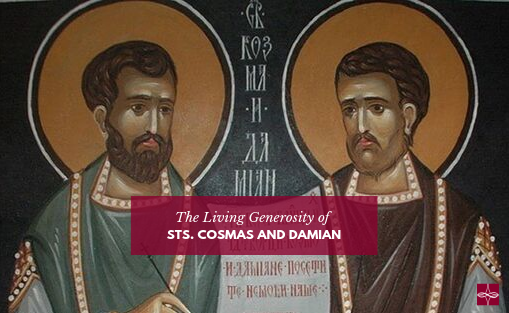

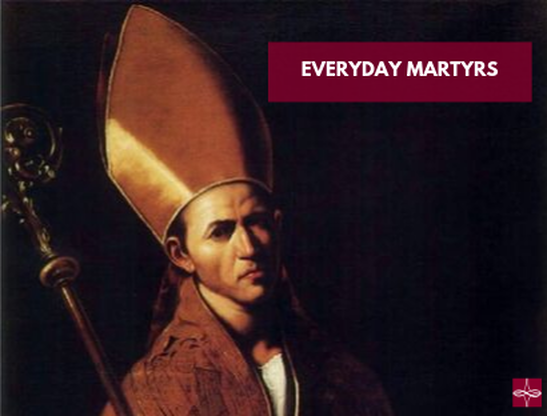

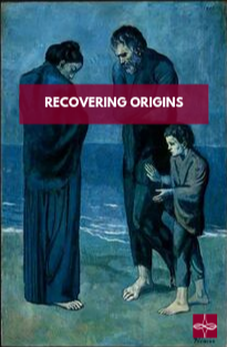

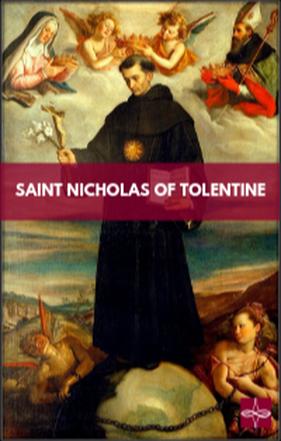

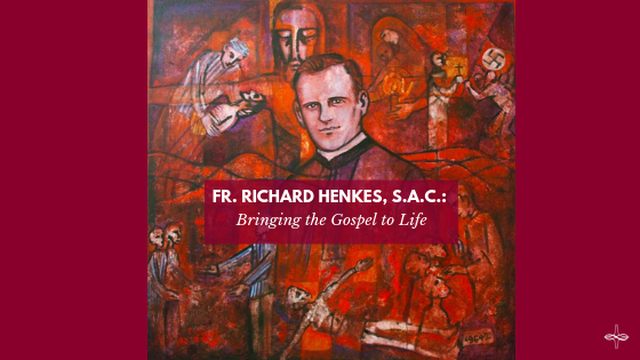
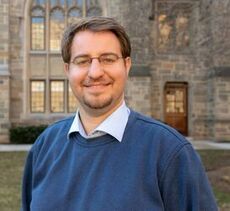




 RSS Feed
RSS Feed